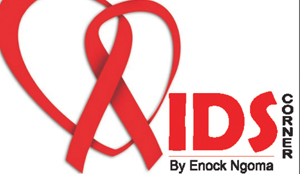 Gilead’s new single-tablet regimen (STR) could compete strongly with ViiV’s Triumeq in HIV treatment space. Phase III results mean Gilead can effectively address safety concerns surrounding renal and bone tolerability of its previous STRs, says analyst.
Gilead’s new single-tablet regimen (STR) could compete strongly with ViiV’s Triumeq in HIV treatment space. Phase III results mean Gilead can effectively address safety concerns surrounding renal and bone tolerability of its previous STRs, says analyst.
Recent developments keep Gilead ahead of the pack in HIV treatment market, says GlobalData Analyst.
On October 8, 2014 London’s UK (GlobalData) released the following statement: – Gilead’s announcement of positive Phase III results for its investigational single-tablet regimen (STR), elvitegravir/cobicistat/emtricitabine/tenofovir alafenamide fumarate (TAF), caps a series of developments bolstering the company’s position as HIV treatment market leader, according to an analyst with research and consulting firm GlobalData.
Gilead recently declared that its new drug, an update of Stribild in which tenofovir disoproxil fumarate (TDF) is substituted with TAF, displayed non-inferior virologic efficacy, as well as improved renal and bone tolerability, compared with its predecessor in Phase III clinical trials.
Moritz Herrmann, Ph.D., GlobalData’s analyst covering infectious diseases, says that these results indicate that Gilead’s new STR could compete strongly against ViiV’s recently-approved STR, Triumeq.
Herrmann comments: “Triumeq threatens Gilead’s long-standing dominance in the single-tablet, once-daily, anti-HIV market, as it is the first non-Gilead STR, and also the first regimen to show virologic superiority over Gilead’s Atripla.
“With these new Phase III results, Gilead can effectively address safety concerns surrounding the renal and bone tolerability of its TDF-containing STRs. This positive development is particularly significant given the size of this market, in which Atripla generated sales of more than $3.6 billion in 2013.”
Additionally, the US Food and Drug Administration (FDA) has approved stand-alone antiretroviral agents Tybost and Vitekta, two of Stribild’s components, but has prohibited their co-administration.
Herrmann continues: “There are no clinical or pharmacokinetic data on combinations of either drug as a stand-alone treatment, meaning that Gilead will be unable to foster the uptake of Tybost as an individual agent.
“While the FDA approvals of Tybost and Vitekta will open up some new revenue streams to Gilead’s diverse antiretroviral portfolio, the uptake of these drugs will be limited by the current market landscape and regulatory decisions.”
Janssen’s Rezolsta is currently being developed under a licensing agreement with Gilead for Tybost to treat adult HIV-1 patients in combination with other antiretroviral agents. Herrmann concludes that the positive opinion of Europe’s Committee for Medicinal Products for Human Use towards Rezolsta will further strengthen Gilead’s HIV market position.
NOTE:
-Comments provided by Moritz Herrmann, Ph.D., GlobalData’s Analyst covering Infectious Diseases. For guidelines on how to cite GlobalData, please see:http://www.globaldata.com/QuotingGlobalData.aspx
ABOUT GLOBALDATA:
GlobalData is a leading global research and consulting firm offering advanced analytics to help clients make better, more informed decisions every day. Our research and analysis is based on the expert knowledge of over 700 qualified business analysts and 25,000 interviews conducted with industry insiders every year, enabling us to offer the most relevant, reliable and actionable strategic business intelligence available for a wide range of industries.Finally, I recently received the following letter from a reader of this column in the United States:
Hello,
I read with interest, your article in allAfrica.com, called Zambia: Challenges of Voluntary Medical Male Circumcision. First, I disagree with the premise. The end goal is not VMMC in itself. The objective is to reduce HIV infection.
Believe it or not, the only studies which show that circumcision reduces the chance of HIV infection are the three African studies which so loudly proclaimed that circumcision decreased a man’s chances of getting HIV by 60 per cent. This is considered to be junk science, by doctors outside of the US, Africa, and WHO.
(There is a pretty good discussion of the flaws of those three studies in the following blog. ttp://blog.practicalethics.ox.ac.uk/2012/05/when-bad-science-kills-or-how-to-spread-aids/)
The reason that the WHO went along with the 3 studies, is largely because their advisor on circumcision, Dr. David Tomlinson, invented four circumcision devices.
If you hire the inventor of four circumcision devices as your expert, and then ask him if circumcision is a good idea, what would you guess his answer would be? He stands to make a profit from each device sold.
When someone is being told there is a 60 per cent chance of reducing HIV infection, and circumcision is suggested, that is not exactly voluntary, is it? Voluntary Medical Male Circumcision is a euphemism.
It is based on scaring someone into a circumcision, and towards the medical establishment, and away from the traditional practitioner.
The odd thing about all of this, is that many European countries, where circumcision is rare, have much lower rates of infection of all sexually transmitted diseases, than the US, Israel, or Ethiopia, where circumcision is common. Check wikipedia.org, HIV rates by country.
It may surprise you.
American studies show no correlation between circumcision status, and sexually transmitted disease, or show them to be greater in circumcised men.
USAID states: “There appears to be no clear pattern of association between male circumcision and HIV prevalence. In 8 of 18 countries with data, as expected, HIV prevalence is lower among circumcised men, while in the remaining 10 countries HIV prevalence is higher among circumcised men”.
Circumcision, by its very nature, causes damage. It removes at least half the skin of a penis, and turns what is meant to be internal, into an external part.
In the US, we have buried nearly a million mostly circumcised men, who died of AIDS. Since its value in preventing HIV and other sexually transmitted disease is at best questionable, and circumcision causes damage, I think your public would be better served, if you advocated safe sex, and condom usage. This is what the rest of the world does to prevent HIV, and it is far more effective than circumcision. All my best, Tom Tobin
For comments write to knoxngoma@gmail.com or SMS/call +260955883143






